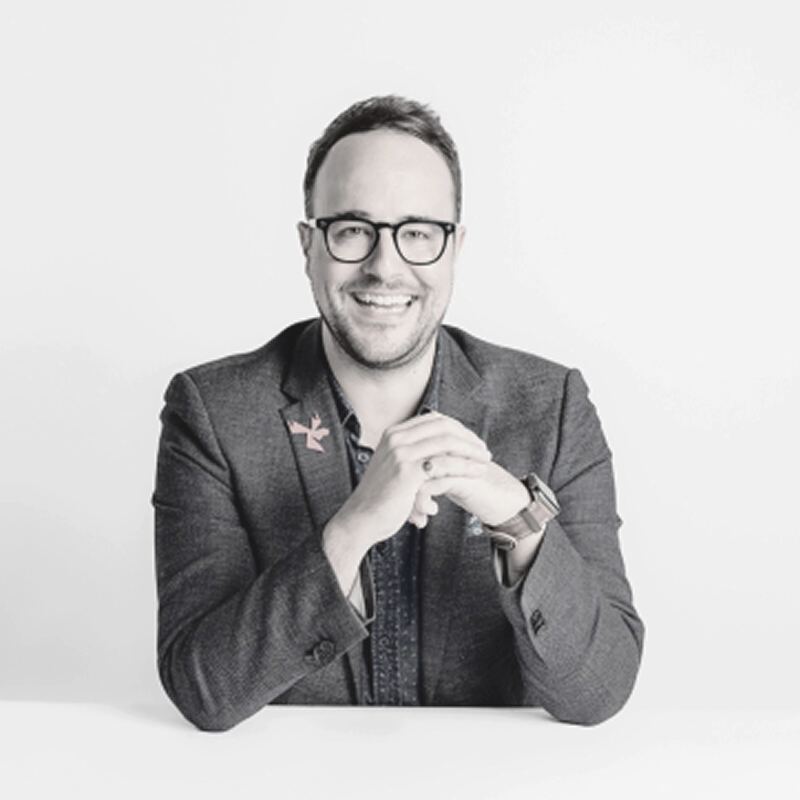
ASKING FOR A FRIEND
How to stay on task whilst juggling a million things at once and what to do when feeling overwhelmed
ASKING FOR A FRIEND - QUESTION
Feeling overwhelmed while trying to balance work and life as a creative? You're definitely not alone. In this insightful discussion, Dr. Khristin Highet, a clinical psychologist with over 15 years of experience supporting creative professionals, shares evidence-based strategies for staying on task when juggling a million things at once. Joined by Andy Wright, CEO of Streamtime and Never Not Creative founder, and Nick Hunter, CEO of creative agency Paper Moose, this conversation tackles the universal challenge of managing creative workloads without burning out. From the psychology behind why we feel overwhelmed to practical techniques like the 30-minute rule and conscious prioritization, discover how to work smarter, not harder, while protecting your wellbeing in the creative industry.
How to Stay on Task Whilst Juggling a Million Things at Once and What to Do When Feeling Overwhelmed
Feeling overwhelmed as a freelance graphic designer—or in any creative role—is incredibly common. Balancing client deadlines, personal commitments, and an endless to-do list can leave you feeling like you're barely holding things together. But here’s the good news: you're definitely not alone, and there are practical ways to ease the overwhelm.
Dr. Khristin Highet, a clinical psychologist with over 15 years’ experience supporting creative professionals, joined Andy Wright (CEO of Streamtime and founder of Never Not Creative) and Nick Hunter (CEO of Paper Moose, a creative agency) to share actionable insights on managing overwhelm.
Normalise Your Feelings First
Before diving into productivity techniques, give yourself permission to feel overwhelmed. As Khristin puts it, "Feeling overwhelmed is a reasonable human experience when we're juggling many responsibilities. When we acknowledge that feeling, it frees us from the added burden of self-criticism."
Simply recognising that overwhelm is a natural response helps you shift your energy from guilt to finding constructive solutions.
Single-Tasking Beats Multitasking
We often think multitasking is efficient, but it’s actually adding to our overwhelm. Khristin explains, "We have a misconception that multitasking is productive, but our brains simply aren’t built for it. Single-tasking—focusing on one task at a time—is far more effective."
Andy reinforces this with an insightful reminder: "Multitasking was designed for computers, not humans. Expecting yourself to multitask perfectly sets you up for unnecessary frustration."
Treat Your Brain Like a Hard Drive
Think of your brain as a computer with limited storage. When overloaded, performance drops. Khristin suggests practical ways to offload your mental load:
- Use a weekly planner to clearly see your time.
- Write down tasks in a ‘brain dump’ to free up mental space.
- Break big tasks into smaller, manageable steps.
- Schedule these smaller steps realistically into your week.
The 30-Minute Rule: Eat That Frog
One of the simplest but most powerful productivity tips is the 30-minute rule: dedicate your first 30 minutes each day to your toughest task.
Why first thing? Khristin clarifies, "When you avoid a challenging task, it's like carrying extra weight all day. Tackling it early removes that burden, making everything else feel easier."
Inspired by the productivity classic "Eat That Frog," doing the hardest task first sets a positive tone for the rest of the day.
Prioritise Consciously and Set Boundaries
Conscious prioritisation and clear boundaries protect your productivity and wellbeing. Khristin highlights the concept of psychological detachment: "Be fully present wherever you are—work, home, or personal time—and consciously detach from other roles."
Nick offers practical scheduling advice: "Every Sunday, I identify my key priorities for the week and block out dedicated, non-negotiable time. Without this intentional scheduling, small tasks can hijack my week."
Remember, scheduling isn’t just for work tasks—it’s also essential for personal time, self-care, and family.
Create Physical Transitions
When working from home blurs your boundaries, physical rituals can help reset your brain. Andy suggests, "Taking a short walk or bike ride at the end of your workday signals to your mind that it's time to shift gears from professional to personal life."
Find Support Through Community
Feeling overwhelmed is easier to manage when you connect with people who truly understand. Never Not Creative Circles are peer groups specifically designed for creatives facing similar pressures. These groups offer practical advice, emotional support, and a reminder that you're not alone.
Know When to Seek Professional Help
If feelings of overwhelm persist despite your best efforts, seeking professional support can be an empowering next step. Khristin emphasises that asking for help shows strength, not weakness. If you’re experiencing chronic stress or anxiety, don’t hesitate to reach out to a mental health professional.
Find resources for professional support
You're Not Alone in This
Remember, feeling overwhelmed doesn’t mean you’re failing. It’s simply a signal that you’re human and handling a lot. Small, intentional changes—like normalising your feelings, single-tasking, and prioritising consciously—can significantly improve your productivity and peace of mind. You’ve got this.
our guests
Industry Leader

Nick Hunter
Paper Moose
Mental Health Expert

Khristin Highet
Host

